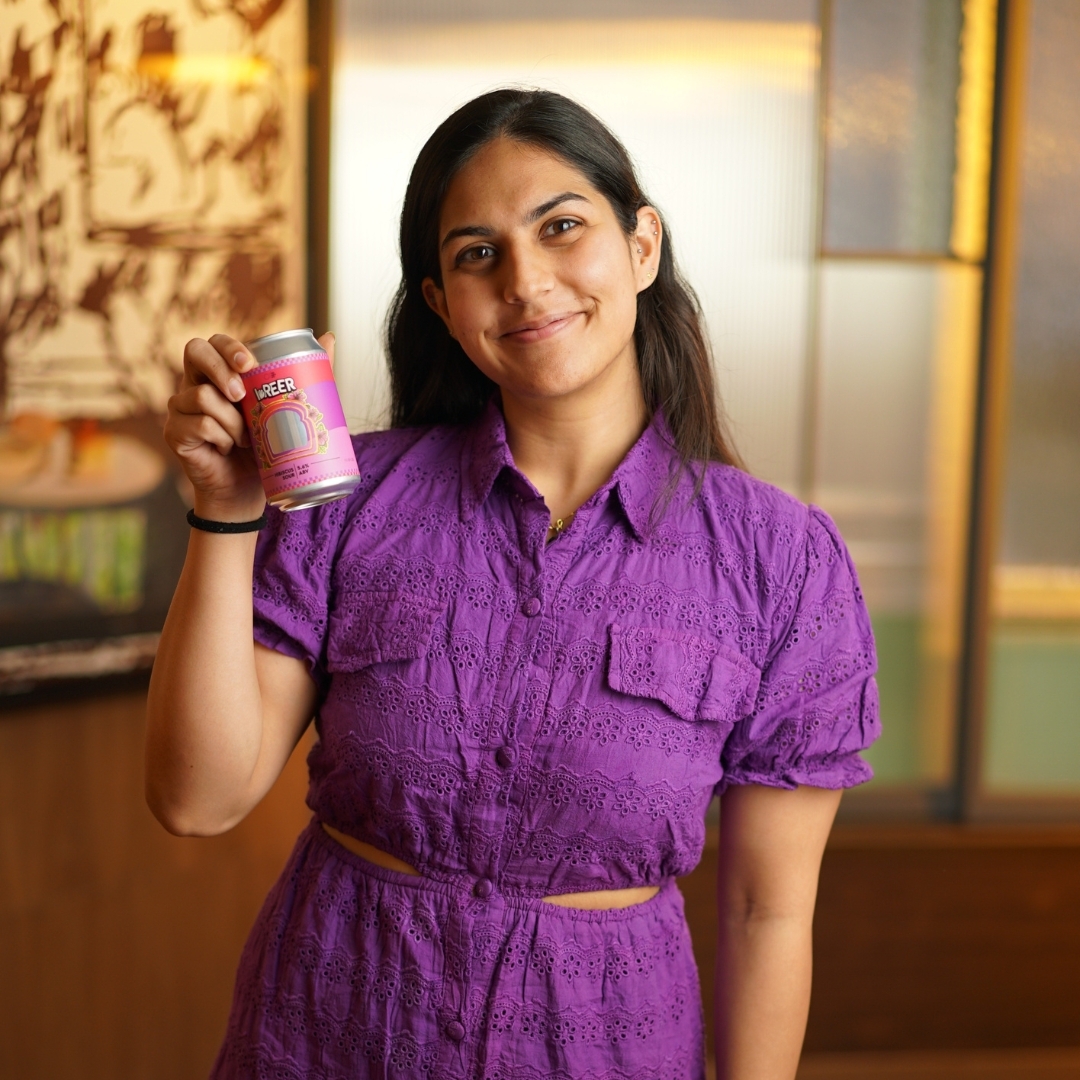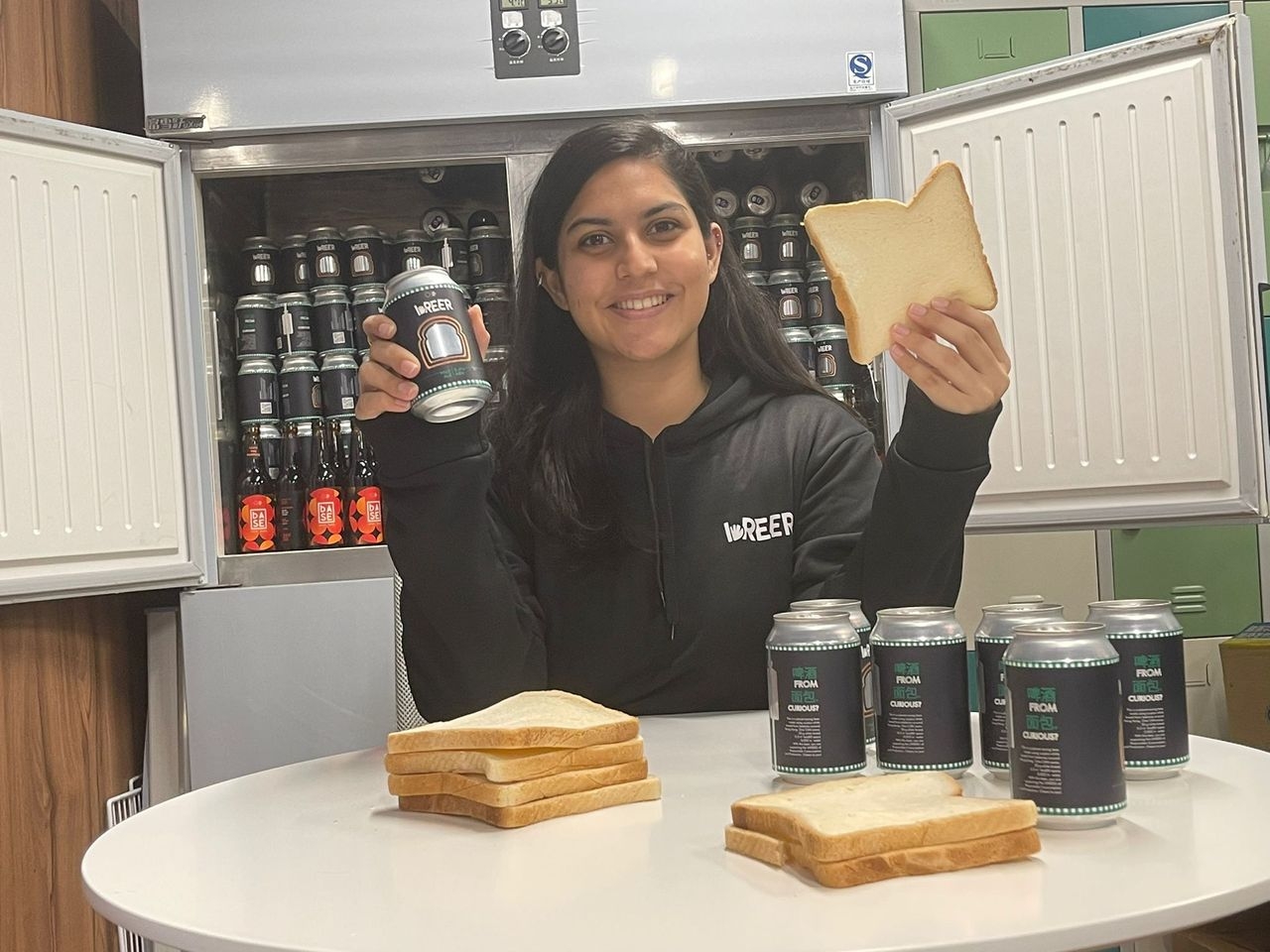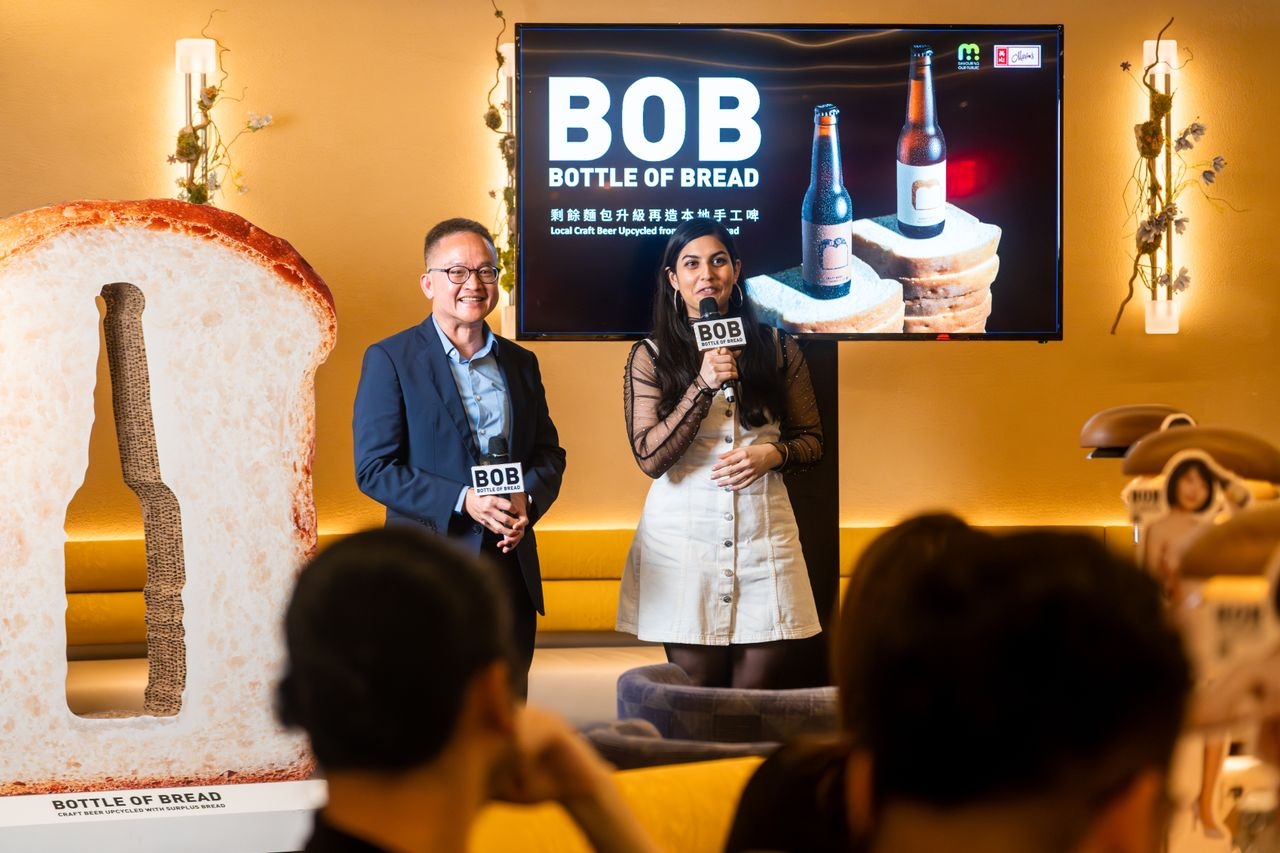
Saving the Food-Wastage Crisis with Pints of Waste Bread
Anushka Purohit has COVID-19 to thank for her success today.
One of four co-founders and CEO of Breer – a food upcycling startup that turns surplus bread into craft beer – she says the time otherwise spent in the classrooms of The Hong Kong University of Science and Technology, where they were students in 2020, was devoted to brainstorming ways to change the world, aptly, after a night out drinking.
One persistent eyesore that caught their attention were the black rubbish bags bulging with unsold, leftover bread just strewn on the streets at the end of the day. Instead of letting them be a part of the 3,300-plus tons of daily food waste – according to the latest study by the city's Environmental Protection Department in 2022 – Anushka and her colleagues had the idea of extracting the leftover bread's malted barley to make beer.
With no chemistry background, the young entrepreneurs dabbled in beer-making with a brewing kit from Amazon in one of their home kitchens, surviving angry parents when grains exploded across the ceiling. In the first year, Breer – a portmanteau of bread and beer – played with 20 to 25 test batches before bringing in a professional brewer for help.

Anushka Purohit: co-founder and CEO of Breer – a food upcycling startup that turns surplus bread into craft beer
Today, the team has got the production down to a delicate science. First, leftover bread is collected and dropped off at contracted local breweries to be broken up and steeped in water, mashed and boiled to form wort – a sugary liquid. For a 500 liter batch, for instance, Breer starts with roughly 700 loaves of leftover bread. Then, hops are added at different pH levels and temperatures depending on the desired flavor for the brew. The wort is poured into the fermentation tank before yeast is mixed in to convert the sugars into alcohol and carbon dioxide. Finally, the beer is carbonated near the end of or after the fermentation process.
In October 2020, Breer debuted a 500 liter batch of lager and pale ale for HK$20 per bottle, each helmed with a QR code that highlights its sustainability impact – such as litres of water saved – and, with permission, the name of the donor bakery.
Since then, Breer has saved surplus baked goods from Maxim's Caterers, Pizza Hut and family-owned bakeries to make its portfolio that now includes a hibiscus sour, Bolo Bao IPA and non-alcoholic Cocktail Bun Pale Ale – the latter two of which are made from Hong Kong's renowned Pineapple Bun and Cocktail Buns – for distribution across outlets including HKTV Mall, City'super, Slowood, Second Draft, HK Island Taphouse and Ho Lan Jeng, to name but a few. In 2023, it collaborated with Maxim's Group to make Bottle of Bread (BOB) for its 350-plus restaurants under the group, the same year when the founders made the Forbes' 30 under 30 list for social impact in Asia. In 2024, Breer joined hands with HK Tramways to launch two limited-edition beers – an egg tart cream ale and a non-alcohol pale ale inspired by curry fish balls – to celebrate the transport system's 120th anniversary.
Anushka says solving food waste problems in Hong Kong requires both top-down regulations and education from the ground up.
Since its first beer hit the shelves back in 2020, Breer has saved 2 tons of baked goods.
"Honestly I love living in Hong Kong – it's a pretty perfect city, but our food waste problem is a serious one," says Anushka. "A lot of existing solutions in the Western world don't really work here. For example, in the States, supermarkets are more willing to sell leftovers; and people have a habit of buying and eating leftovers. In Hong Kong, however, people will pay double or triple the amount for something that's made right fresh in front of them."
On the flip side, bakeries were, too, reluctant to donate their surplus, preferring instead to dispose of them. Anushka attributes this to a lack of trust, liability concerns and, most importantly, the city's capitalistic roots.
"Most people in Hong Kong wouldn't just give things away for free; they want to maximize the benefits. They'd rather throw it away – which already gives them a bad image – than to offer it for free to people in need. It's a sad reality," she says.
Despite its success today, she calls Breer a "post-problem solution" in that it only resolves waste that's already been made. So while she applauds the strides made in the commercial realm – such as buffets that charge per 100g of unfinished food – she hopes to see macro changes from decision makers, say regulations that mandate restaurants and bakeries to donate food surplus, which, in turn, would hopefully diminish excessive production. Vice versa, public education is also essential so packing leftovers from the dinner table can shed its stigmas of frugality to become a practice of sustainability and so supermarket produce isn't judged by their aesthetic imperfections but by the nutritional value they still retain.

Breer partnered with mega food chains like Maxim's Caterers to launch Bottle of Bread (BOB) for its 350-plus restaurants.
"It's so easy to think that 'hey, I am not the one who's wasting the 3,300 tons of food so that's fine'. It's precisely this herd mentality that hurts us in the long run," she says. "We don't always understand the magnitude of our decisions: if one person stops throwing out his/her leftovers, he/she becomes a part of the solution to a mammoth problem."
Such change in habit, Anushka adds, is not an easy task, especially when waste itself underlines entitlement and privilege in a city where the rich-poor gap, though immense, remains predominantly hidden.
"India, where wealth disparity is imminent, poverty is evident: we see those who need help around us. In Hong Kong, up to six years ago, you wouldn't see homelessness or blatant poverty so the people who have luxuries to food and a roof over their heads don't realize how lucky they are to have these privileges and that there are people out there who are much, much less fortunate. The re-education has to come from the ground up and goes far beyond food waste, but we have to start somewhere."

